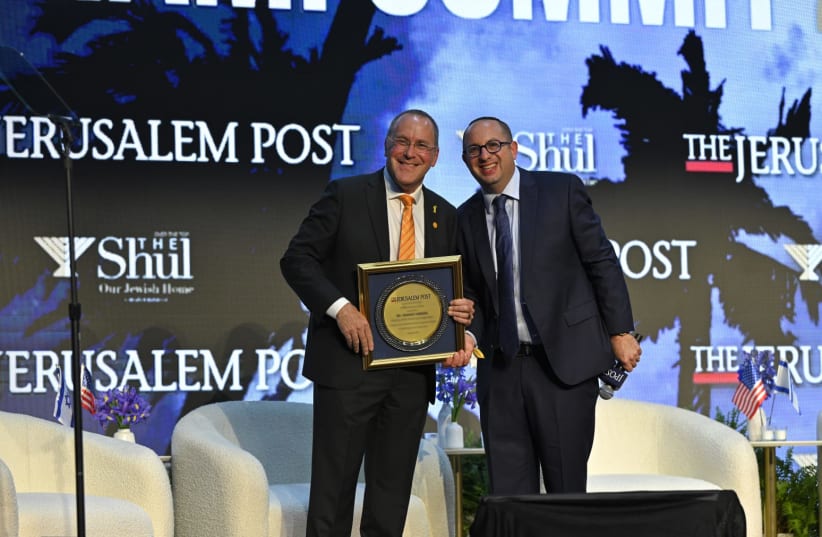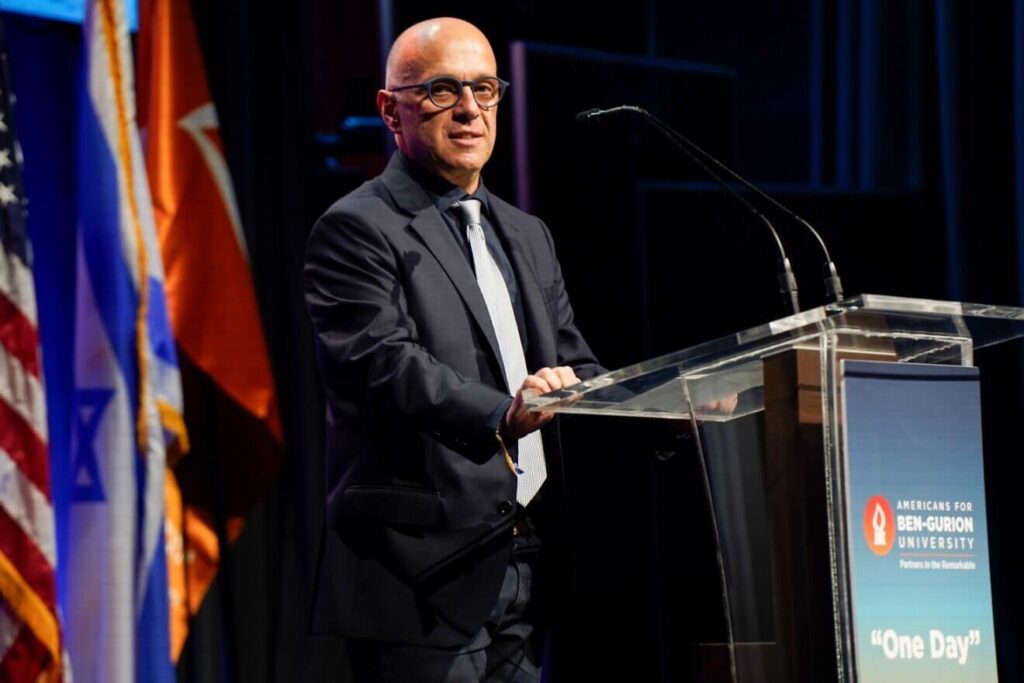
BGU Team Presents Israel Environmental Movement Report to Knesset
BGU Team Presents Israel Environmental Movement Report to Knesset
June 22, 2011
 Ben-Gurion University of the Negev’s (BGU) Prof. Alon Tal presented the most comprehensive report to date on Israel’s environmental movement. It details the movement’s lack of training, involvement of experts and public support, as well as its perilous dependence on foreign donations.
Ben-Gurion University of the Negev’s (BGU) Prof. Alon Tal presented the most comprehensive report to date on Israel’s environmental movement. It details the movement’s lack of training, involvement of experts and public support, as well as its perilous dependence on foreign donations.
The report, “Israel’s Environmental Movement: Trends, Needs and Potential,” was presented to Knesset Speaker MK Reuven Rivlin on Tuesday as part of Environment Day at the Knesset. Prof. Alon Tal, of the Institute for Dryland Environmental and Energy Research at BGU’s Sde Boker campus, offered a detailed portrait of the current movement and recommendations for its future.
While the mainstream population of Israel is becoming more environmentally aware, large population segments, such as the Arab and Haredi (ultra-Orthodox) sectors still remain for the most part unengaged, the report’s authors found. As the two sectors are the fastest growing in Israel, Tal recommends actively increasing the environmental movement’s engagement with these populations.
The report recommends addressing the “elephant in the room” – the issue of overpopulation. Israel is the most crowded of the Western countries, yet continues to pursue a vigorous pro-natal and pro-immigration policy. Much of Israel’s environmental problems can be attributed to a population explosion from one million people in 1950 to 7.7 million people in 2011 – a scant 61 years.
“The environmental movement must start to address population policy in the same way that environmental movements abroad do so,” Tal explains. “Sadly, no organization or philanthropic organization is willing to seriously address these issues, which will ultimately make Israel ecologically barren and socially untenable,” he says, suggesting that the complex issues be addressed in a sensitive but proactive manner.
Israel’s environmental movement is just 20 years-old and significant changes have taken place in its second decade, including the establishment of more than 50 new organizations. The movement’s umbrella organization, Life and Environment, now boasts more than 100 member-organizations.
The report is based on a detailed questionnaire completed by 98 organizations, as well as in-depth interviews with over 30 environmental leaders in Israel to draw a picture of a movement out of its infancy, but still struggling to establish itself professionally. These non-governmental organizations (NGOs) have learned to work together and are remarkably homogenous in terms of priorities and messages. Formal and ad-hoc coalitions have sprung up at a surprising rate, the survey revealed.
Roughly 50 percent of the organizations surveyed rely on international foundations for more than half of their funding. This funding is often project-based, which puts many of these environmental organizations on precarious economic footing. Without steady sources of income, long-term strategic planning and financial reserves to weather lean years are largely absent – a situation which represents an existential risk to many of the organizations.
Tal and his team stressed that such a heavy reliance on international funding sources as opposed to domestic funders and membership fees was not a good sustainable practice. Currently, many former foundation stalwarts have already closed or will be closing down their Israel operations.
The report also reveals the low volunteer participation and lack of new member recruitment. More important for securing a strong financial base, most NGOs do not have many members. Only three organizations boasted more than 5,000 members while the vast majority (77 percent) of organizations polled had 100 members or less.
Only a quarter of the organizations collect any membership dues, which indicates that the general public is largely uninvolved in the environmental movement and has little access to it even if they were interested in participating.
Tal also found that the level of professional training within environmental groups was not particularly high. Ph.D.s in relevant environmental sciences, public health experts and lawyers were all absent from most organizations. Most of these NGOs do not have any economists on their payroll at a time when environmental advocacy worldwide has increasingly become an economic argument. Tal and his research team called for the hiring of more professionals as a crucial step in continuing the fight against rapacious development.
“This informative report on Israel’s young environmental movement underscores the need for much more grass roots and technical support,” explains Doron Krakow, executive vice president of American Associates, Ben-Gurion University of the Negev. “It is my hope that it leads to the recruitment of needed experts, many of whom can be found at BGU.”
Ben-Gurion University is a designated “green campus” by Israel’s Ministry of Environmental Protection and is known for its research on sustainable development of the desert, alternative energy, water management and desert agriculture.
ABOUT AMERICANS FOR BEN-GURION UNIVERSITY
By supporting a world-class academic institution that not only nurtures the Negev, but also shares its expertise locally and globally, Americans for Ben-Gurion University engages a community of Americans who are committed to improving the world. David Ben-Gurion envisioned that Israel’s future would be forged in the Negev. The cutting-edge research carried out at Ben-Gurion University drives that vision by sustaining a desert Silicon Valley, with the “Stanford of the Negev” at its center. The Americans for Ben-Gurion University movement supports a 21st century unifying vision for Israel by rallying around BGU’s remarkable work and role as an apolitical beacon of light in the Negev desert.
About Ben-Gurion University of the Negev
Ben-Gurion University of the Negev embraces the endless potential we have as individuals and as a commonality to adapt and to thrive in changing environments. Inspired by our location in the desert, we aim to discover, to create, and to develop solutions to dynamic challenges, to pose questions that have yet to be asked, and to push beyond the boundaries of the commonly accepted and possible.
We are proud to be a central force for inclusion, diversity and innovation in Israel, and we strive to extend the Negev’s potential and our entrepreneurial spirit throughout the world. For example, the multi-disciplinary School for Sustainability and Climate Change at BGU leverages over 50 years of expertise on living and thriving in the desert into scalable solutions for people everywhere.
BGU at a glance:
20,000 students | 800 senior faculty | 3 campuses | 6 faculties: humanities & social sciences, health sciences, engineering sciences, natural sciences, business & management, and desert research.
For all press inquiries, please contact:
James Fattal, J Cubed Communications
516.289.1496



